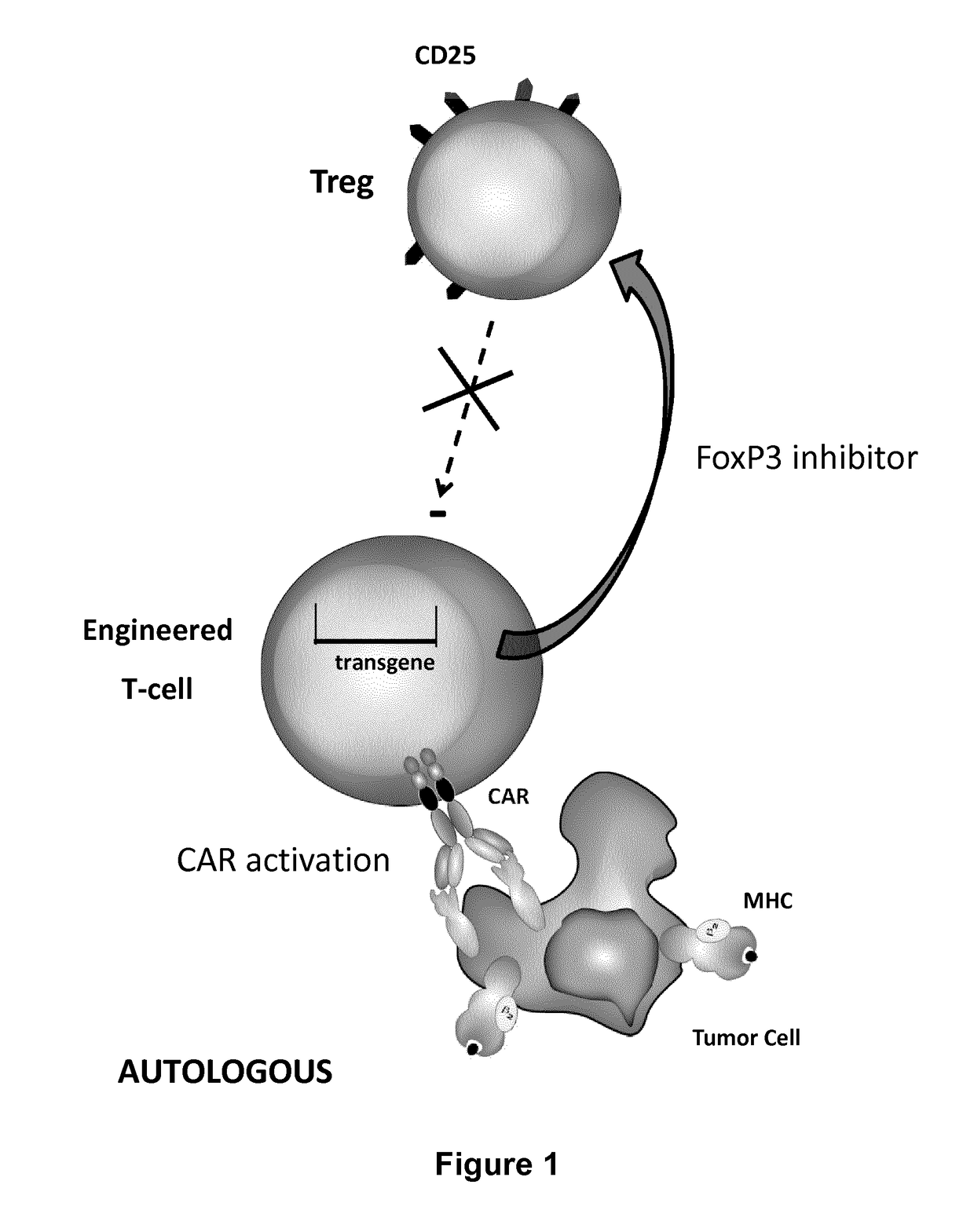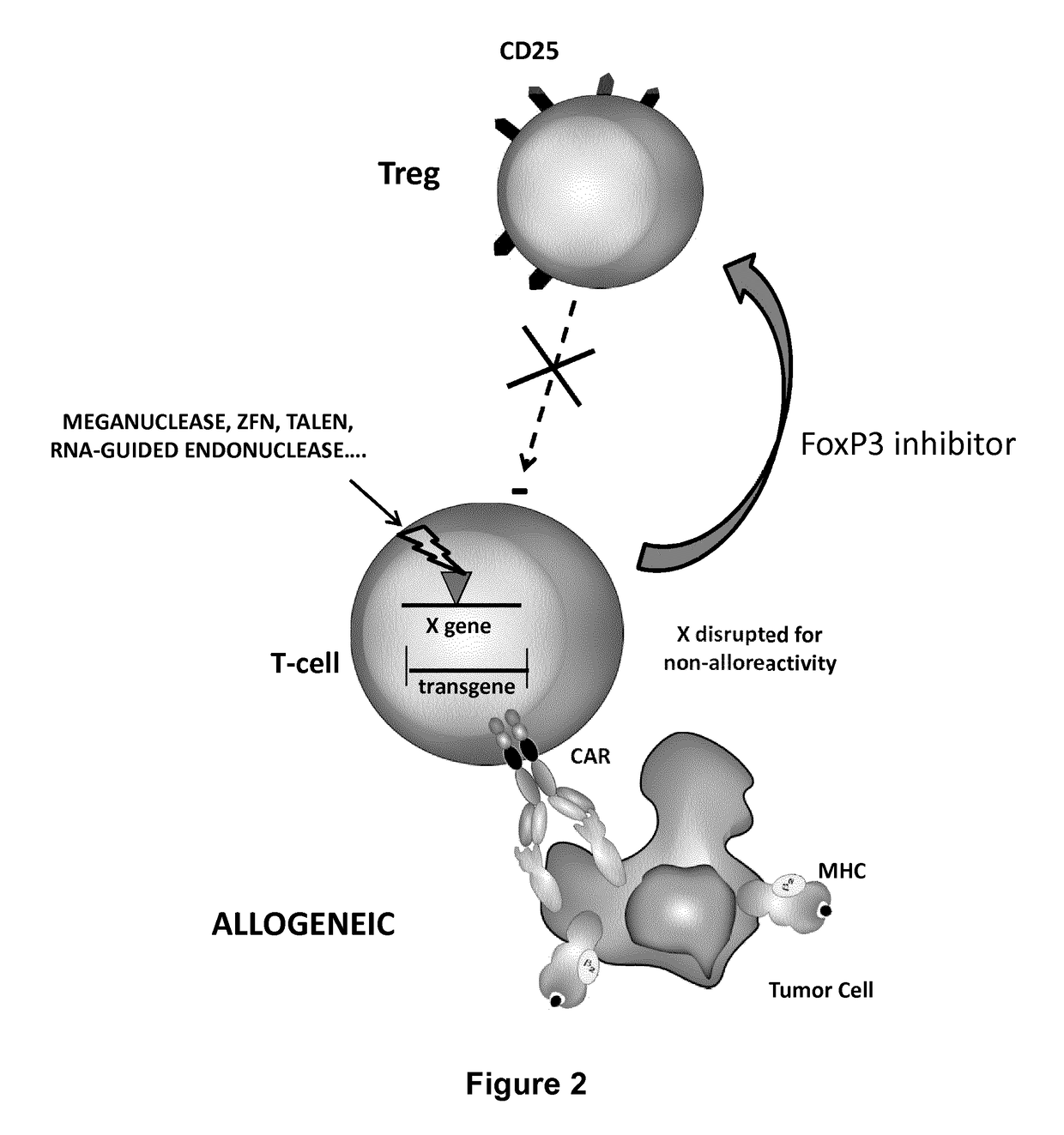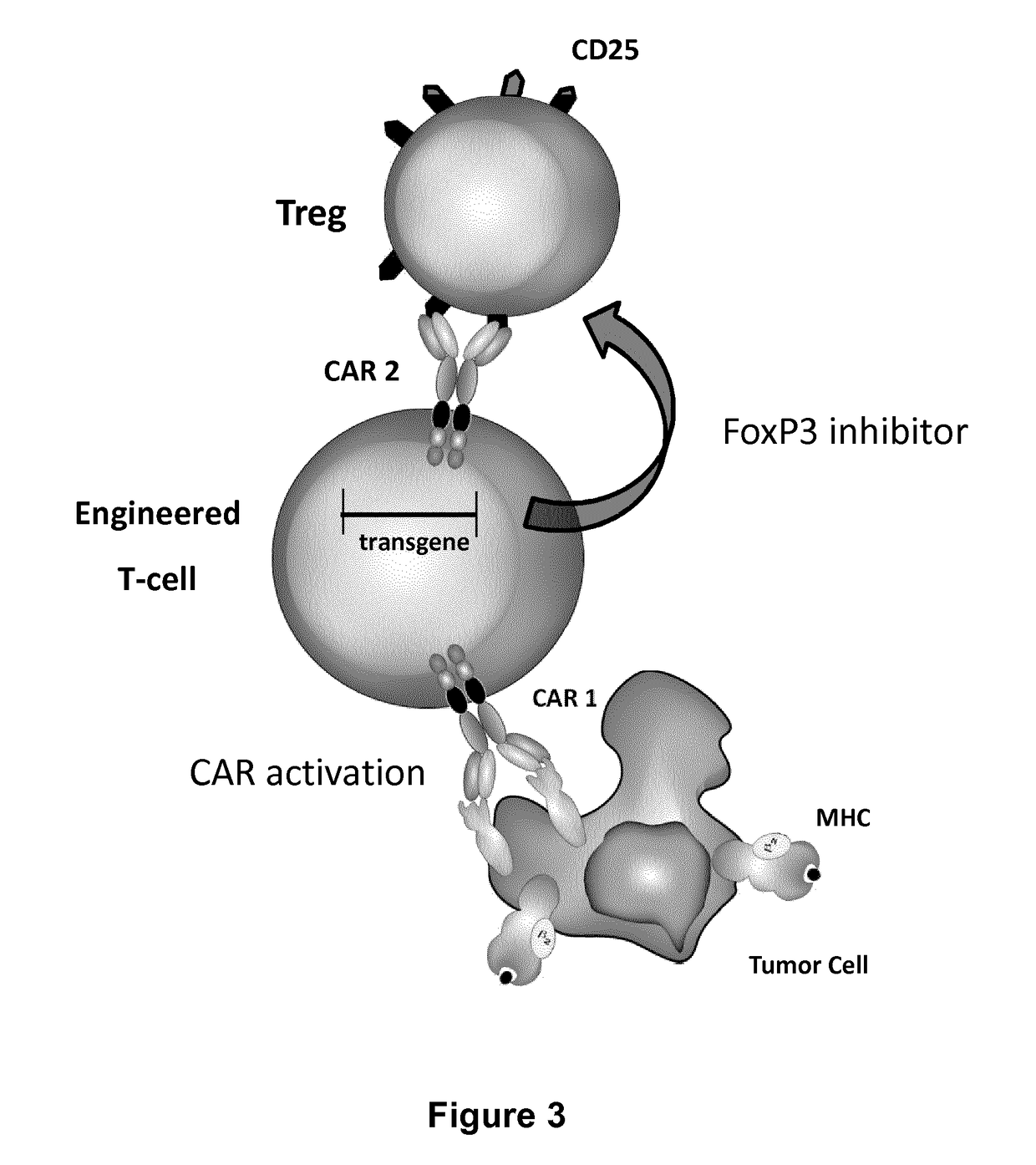Method for in situ inhibition of regulatory t cells
a technology of regulatory t cells and in situ inhibition, which is applied in the field of engineered t cells, can solve the problems of inability to provide prolonged expansion and anti-tumor activity in vivo, hinder the induction of an immune response against cancer, and systemic administration of inhibitors directed against cancer
- Summary
- Abstract
- Description
- Claims
- Application Information
AI Technical Summary
Benefits of technology
Problems solved by technology
Method used
Image
Examples
example 1
bition Test
[0174]Human primary T cells were activated with anti-CD3 / CD28 beads. At day 3, they were transfected with a messenger RNA coding for foxp3 inhibitory peptide p60 (SEQ ID NO: 1) fused to a mutated Chicken lysozyme signal peptide (3R CLSP—SEQ ID NO: 12) (alternative SEQ ID NO. 13 to 17 displayed in Table 1 may also be used). At day four, the transfected T cells were mixed with human regulatory T cells (Treg) and their proliferation was followed according to the assay described by Collison, L. W et al. (In vitro Treg suppression assays, Methods Mol. Biol., 2011, 707:21-37). This assay shows that the T-cells transfected with the p60 messenger RNAs, proliferate faster than those transfected with the mock RNA (scrambled p60—SEQ ID NO: 9), upon contact with the regulatory T cells. It resulted that p60 peptide expression allowed T cells to resist Treg inhibition.
example 2
Activity Test
[0175]Human primary T cells is activated with anti-CD3 / CD28 beads. At day 3, the activated T cells are transduced with a lentiviral vector encoding the chimeric antigen receptor anti-CD19 set forth as SEQ ID NO: 5 along with the Foxp3 inhibitory peptide p60 (SEQ ID NO: 1) fused to a mutated Chicken lysozyme signal peptide (3R CLSP—SEQ ID NO: 12) (alternative SEQ ID NO. 13 to 17 displayed in Table 1 may also be used). At day 5, the cytotoxic activity of the transduced T cells are assayed according to the method described by Yang, Z. Z. et al. (Attenuation of CD8(+) T cell function by CD4(+)CD25(+)regulatory T cells in B-cell non-Hodgkin's lymphoma, 2006, Cancer Res.) against a relevant target cell line in the presence or absence of Tregs.
The assay shows that regulatory T cells usually have an inhibitory effect on the cytotoxic capacity of CAR+ T cells, whereas p60 peptide expression by the T cell restores cytotoxic activity by lifting this inhibition.
TABLE 1Sequences use...
PUM
| Property | Measurement | Unit |
|---|---|---|
| temperature | aaaaa | aaaaa |
| time | aaaaa | aaaaa |
| time | aaaaa | aaaaa |
Abstract
Description
Claims
Application Information
 Login to View More
Login to View More - R&D
- Intellectual Property
- Life Sciences
- Materials
- Tech Scout
- Unparalleled Data Quality
- Higher Quality Content
- 60% Fewer Hallucinations
Browse by: Latest US Patents, China's latest patents, Technical Efficacy Thesaurus, Application Domain, Technology Topic, Popular Technical Reports.
© 2025 PatSnap. All rights reserved.Legal|Privacy policy|Modern Slavery Act Transparency Statement|Sitemap|About US| Contact US: help@patsnap.com



